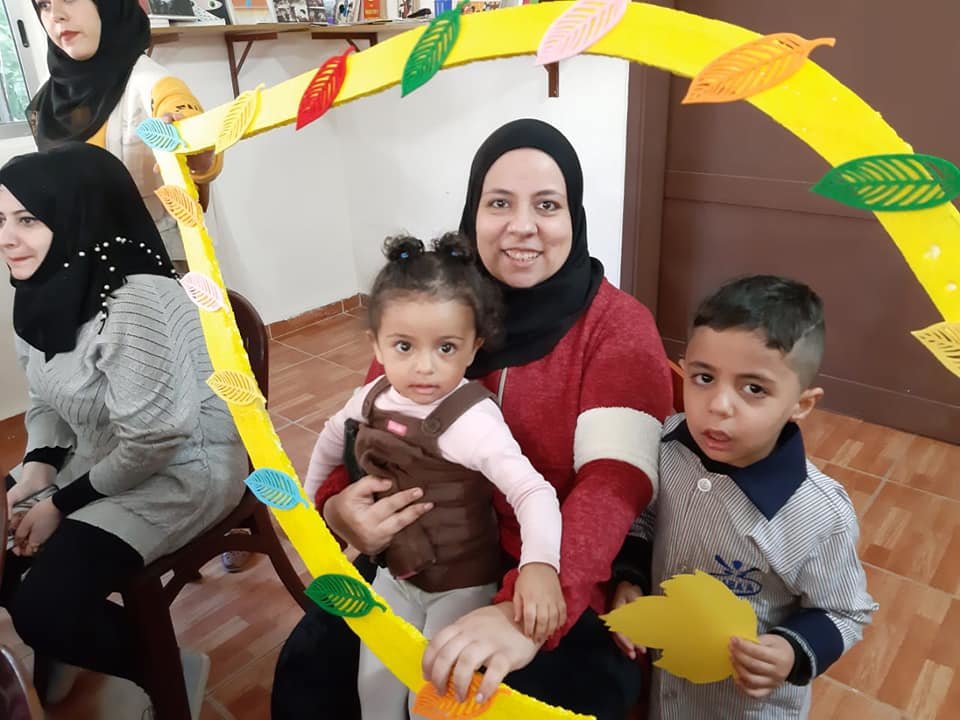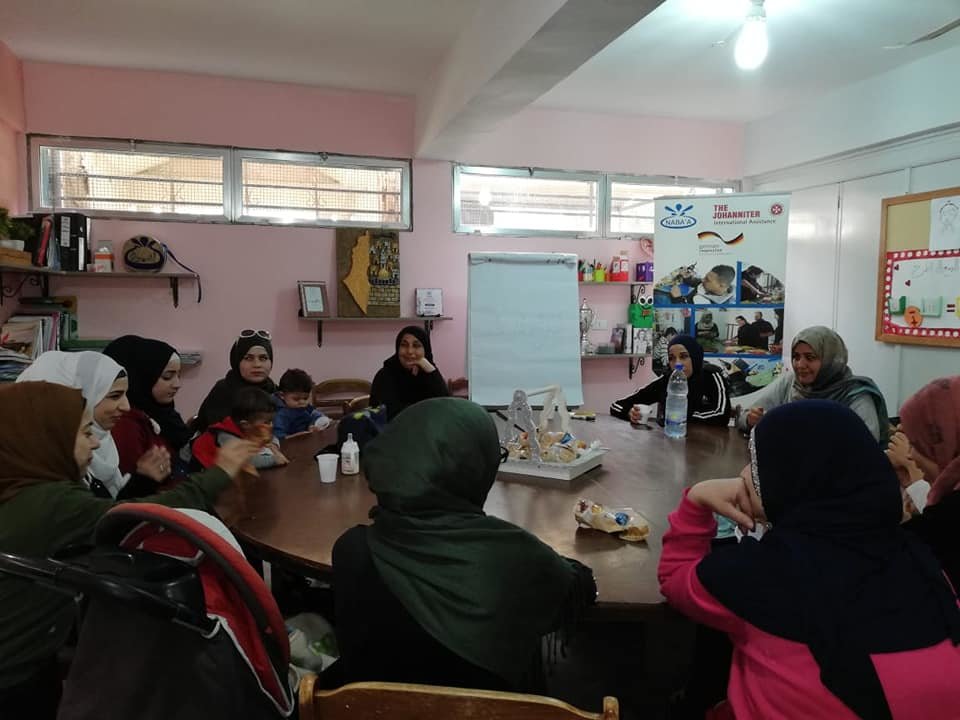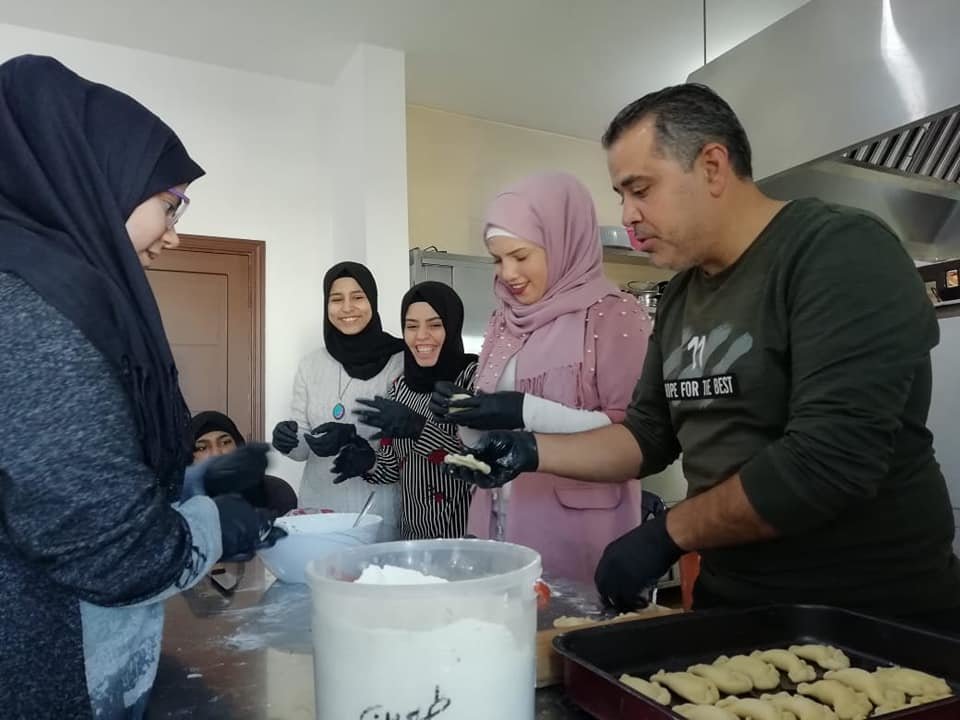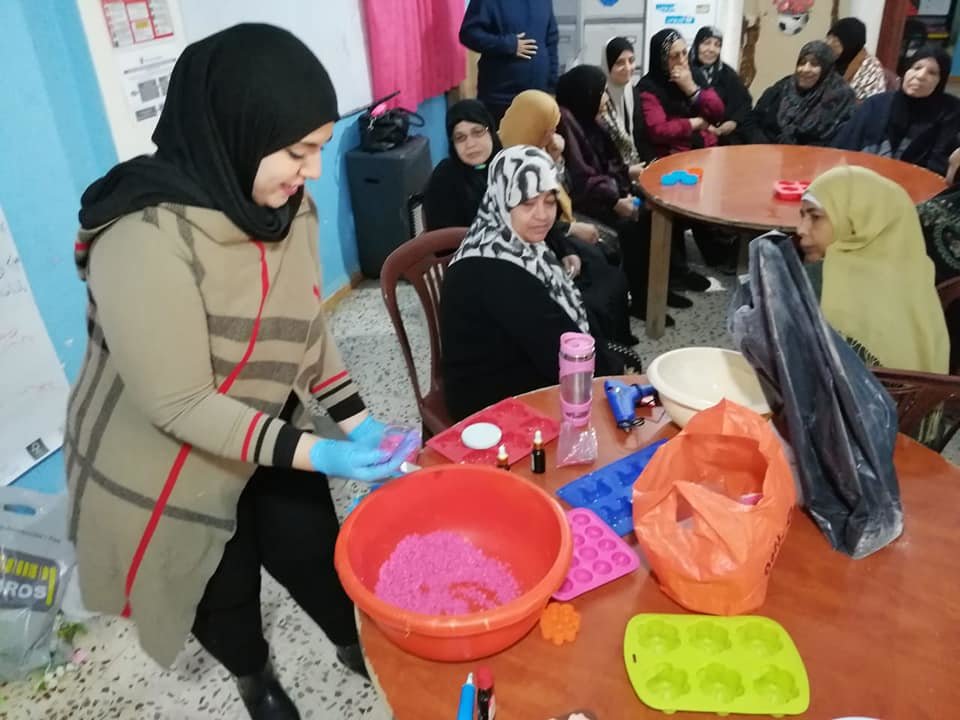By Hiba Hamzi | Program Coordinator
Naba’a Achievements; During the last period, Naba’a aimed to improve the situation of the women and girls living in the most marginalized and impoverished communities. Through different interventions Naba’a also works on gathering both (Palestinian refugees women who are already living inside the camps and those who fled from Syria) to raise together their common problems and sufferings, monitoring the violations of their rights in the local community and to reduce the conflict among themselves. By taking a grassroots approach we aimed to help women to become effective actors for social change; giving them the knowledge, skills and confidence to drive social change in their own communities. Therefore, Naba’a intervention is based on two mainstreams;
o Women and girls access reproductive health services; Nabaa’ targeted 9689 beneficiaries 820 male and 8869 provided two non-consecutive days/ week – clinics in Ein el Helweh and Rashidieh which targeted 1230 female (45 from the age group of 11-18 and 1100 from the age group 19-35 and 85 from the age group of 36-50+) note that, the clinics are managed by a women gynaecologist and a female nurse and the clinic operates one day in the afternoon.
Case Study
ü Violence in school
ü engaged at 14 years’ old
ü Dropout from school
ü Married
Since the beginning of the project, by drawing attention to the project's aim and through meetings with girls that we were targeted, she told us that she was engaged, but she liked the idea of the project and asked to participate in it. And one of the objectives of the project is to work with girls who are vulnerable to early marriage.
After building a good relationship and a trust between the social worker and the girls, the girl told her story to the social worker.
Because of the social norms and traditions of the area that do not allow the girl to get out of the house and mingle during her adolescence, and because of the absence of parents' interest in the feelings of the girl and lack of consciousness of her and guide her to what is best for her in the future, all that encouraged the girl to establish an emotional relationship with one of the young relatives. When parents knew about this relationship for fear of its consequences and from the words of people in society and based on the social norms and traditions, the parents agreed on the girl engagement, and it was as a joy on this step. And she decides her wedding date when she is 17 years’ old
When the engagement took place, she was encouraged to leave school because she was subjected to violence, which affected her degrees in the school, where She was retreating, especially After she failed in the grade 7. she dropped out of school and found no one to encouraged her to continues her education.
Engagement affected the study of the girl in conjunction to subjected to school violence and the lack of parents' interests, which encouraged her to drop out of school from the grade 7. And decided to marry when she becomes 17 years old.
After the participation of the girl in the project's activities, after participating in the training (protection - life skills - the risks of early marriage - the importance of education) and through integration into society through the implementation of awareness sessions for her peers and participation in advocacy campaigns that encourage girls to education, which encouraged her To participate in quick professional courses, and the participation of her parents in awareness sessions for parents, which affected the thinking of parents and girls and delay the age of marriage until after 18. the wedding was held at the age of 19 years in agreement with her future husband successfully and joyfully. Even after marriage, she still participates in the project's activities.
We Encouraged her to return to school and complete her educational career. And raise her awareness about family planning.
Links:
Project reports on GlobalGiving are posted directly to globalgiving.org by Project Leaders as they are completed, generally every 3-4 months. To protect the integrity of these documents, GlobalGiving does not alter them; therefore you may find some language or formatting issues.
If you donate to this project or have donated to this project, you can receive an email when this project posts a report. You can also subscribe for reports without donating.
Support this important cause by creating a personalized fundraising page.
Start a Fundraiser


